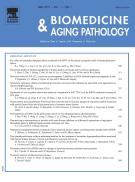Screening for the modulation of neovessel formation in non-tumorigenic and tumorigenic conditions using three different plants native to Western ghats of India - 22/10/14

Abstract |
Angiogenesis is the growth of neovessels from existing vasculature. In diseases such as cancer excessive angiogenesis occurs when diseased cells produce abnormally large amounts of angiogenic factors. A wide range of plants contains compounds with angiogenesis modulating properties, which are currently known. The present study explores the screening for antiangiogenic potentials of Argeria elliptica Wight., Ipomoea fistulosa and Leea indica Merr which are native to Western ghats of India. The leaf materials of the plants were subjected for cold ethanolic extraction process. The crude extracts were then screened for preliminary angiogenesis assay like rVEGF165 induced in vivo CAM assay, rat corneal micropocket assay and tumor induced peritoneal angiogenesis assay. The molecular basis of modulation of neovessels was verified by the expression of VEGF using RT-PCR and ELISA. The preliminary screening for the angiomodulatory effect of crude extracts revealed that L. indica potentially inhibited the sprouting vessels both in non-tumorigenic and tumorigenic conditions. Inhibition of VEGF expression by L. indica has contributed for tumor inhibitory effect. Findings suggest that, the crude ethanolic extract of L. indica potentially inhibits the angiogenesis by down regulating the expression of VEGF and emerged as a potent angiomodulating plant out of three plants.
El texto completo de este artículo está disponible en PDF.Keywords : Leea indica, Antiangiogenesis, VEGF
Esquema
Vol 4 - N° 4
P. 343-348 - octobre 2014 Regresar al númeroBienvenido a EM-consulte, la referencia de los profesionales de la salud.
El acceso al texto completo de este artículo requiere una suscripción.
¿Ya suscrito a @@106933@@ revista ?

